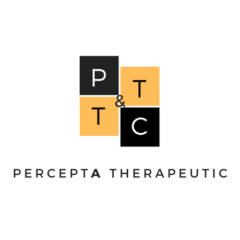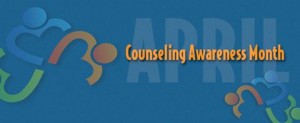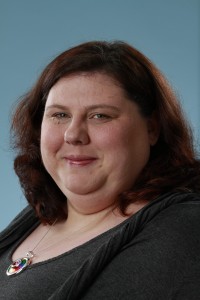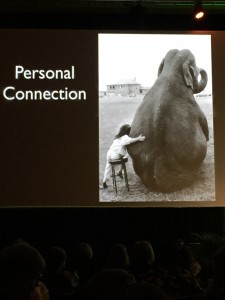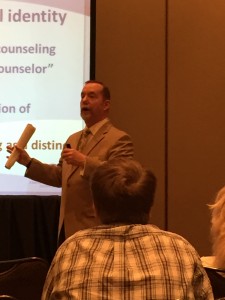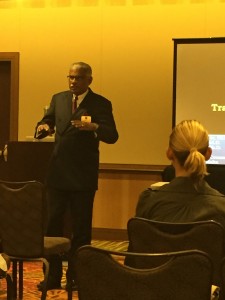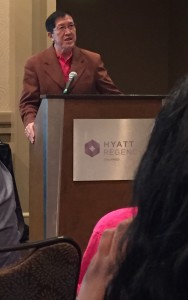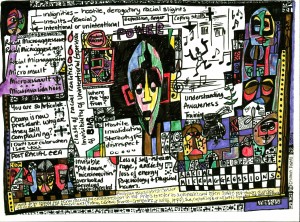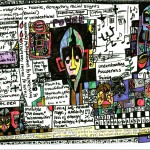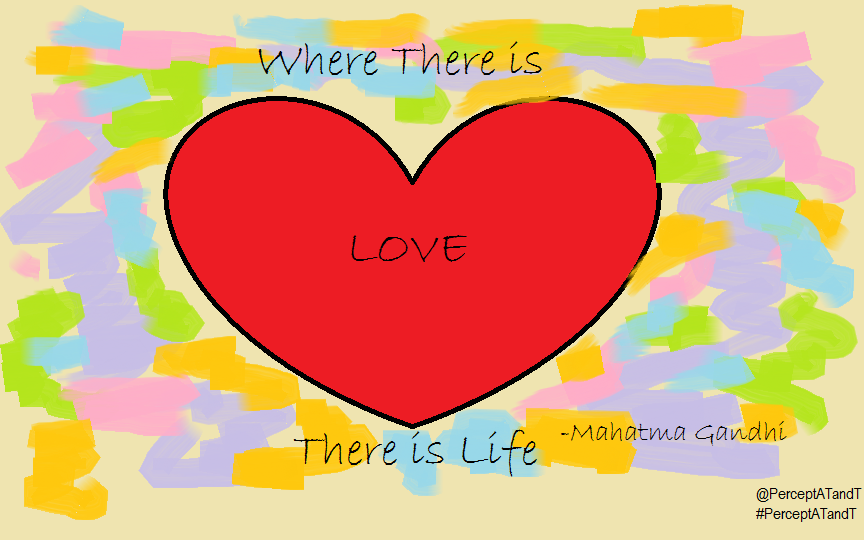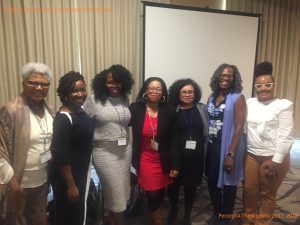
April is Counseling Awareness Month, and a time to celebrate and shine a spotlight on professional counselors, the critical work they do, and the many ways they serve their clients, schools, communities, and other private and public institutions. In the spirit of Counseling Awareness Month 2018, we are recognizing seven women professional counselors of color working in the Maryland area. Thank you for being such great advocates for marginalized clients, diverse students, disenfranchised communities, and other Professional Counselors of Color!
Donna Shannon, Ph.D., LCPC
Dr. Donna Shannon has provided mental health services to adults and adolescents in the greater Baltimore, Maryland area since 2006. She holds a doctorate degree in Pastoral Counseling from Loyola University Maryland. Her research, which has been published in the American Psychological Association Journal of Psychology of Religion and Spirituality, explored the moderating effects of spirituality on exposure to violence in urban adolescents. She is a Licensed Clinical Professional Counselor and an Approved Licensed Clinical Professional Supervisor. Currently, Dr. Shannon is the Wellness Facilitator for the new Adullum Community Healthcare Center in Baltimore. Additionally, she is an online instructor for the Graduate School of Religion and Religious Studies, Fordham University, New York.
Dr. Shannon enjoys speaking to community groups and organizations on topics such as “bouncing back” from traumatic events, building personal resilience, and mindfulness based cognition. She has traveled to Malawi and Ghana to provide consultation and wellness training to mental health practitioners. Dr. Shannon believes each of us can create a sense of inner peace by learning to “be” in the present moment, experience gratitude, and view all life events as opportunities for growth.
Chioma Anah, Ed.D., ATR, LCPC-S, NCC, ACS
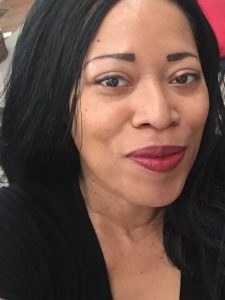
Dr. Chioma Anah holds a Doctorate of Education in Counseling Psychology, is a Registered Art Therapist (ATR), a National Certified Counselor (NCC), a Licensed Clinical Professional Counselor (LCPC- Maryland), an Approved Clinical Supervisor (ACS), a Board Approved Supervisor in the state of Maryland, and the Founder & CEO of PerceptA Therapeutic & Training Center, LLC located in Towson, Maryland. She has over 15-years experience in the clinical field working with at-risk adolescents, adults, and families of all races and cultural background. As a registered art therapist, she uses art with clients as part of a healing approach and intervention to treat cultural & racial oppression. Dr. Anah is an Adjunct Faculty at Argosy University, Northern Virginia, and works closely with doctoral students in the dissertation phase of their studies. Her research interests are in multicultural issues in counseling, social justice advocacy, racial microaggressions, psychology of racism, art & creativity as tools for healing, and resiliency and coping interventions for race-related stress and trauma. She has presented in many national and regional conferences, including workshops at the American Art Therapy Association (AATA) Conference. Dr. Anah also trains and supervises counselors on working to identify and utilize more effective interventions to address issues in multicultural/diverse counseling. Dr. Anah is an avid reader, writer, and loves to create art. She is also a proud alumna of the Johns Hopkins University School of Education. Email: drchiomaanah@gmail.com
Danielle LaSure-Bryant, Ed.D., LCPC, NCC, ACS
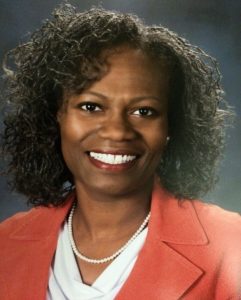
Dr. Danielle LaSure-Bryant is a Licensed Clinical Professional Counselor (LCPC) and an Approved Clinical Supervisor (ACS) by the Maryland Licensing board. She received her Masters’ degree in Agency and Community Counseling from Xavier University (OH) and her doctorate in Counselor Education and Supervision from the University of Cincinnati. Prior to relocating to Maryland, she was fully licensed as a Clinical Counselor in the state of Ohio where she also maintained a private practice. Currently, Dr. LaSure-Bryant works as a Clinical Manager for Maryland Health Alliance, Inc. Her clinical duties at MHA include (but not limited to) supervising provisionally licensed counselors, overseeing administrative tasks, and managing a small caseload. Before moving to MHA, Dr. LaSure-Bryant was the Director of Clinical Education for the Pastoral Counseling department at Loyola University in Maryland for 14 years. Outside of her clinical activities, Dr. LaSure-Bryant takes time for community involvement by serving as the Executive Secretary for the Board of Directors for Family Services, Inc. In addition, she was appointed to serve on the Clifton T. Perkins Center Advisory Board where she currently functions as the board Chairperson. Personally speaking, Dr. LaSure-Bryant has been married for 29 years, has 2 adult children and is an avid runner. Email: drdaniellelb@gmail.com
Deidra A. Sorrell, Ed.D., LPC, NCC, ACS
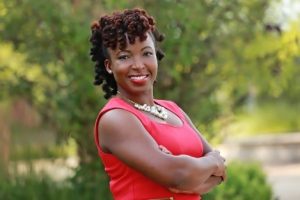
Dr. Deidra A. Sorrell is a licensed professional counselor, licensed clinical supervisor, and certified school psychologist. She is the founder of Synergy Wellness Therapeutic Services where she provides individual counseling to children, adolescents and adults in the Charles County, Maryland area. As a veteran school psychologist, Dr. Sorrell served 18 years as a school psychologist with DC Public Schools before committing to full time private practice.
Given her research interests in workplace bullying, Dr. Sorrell provides interactive workshops on the Ethical Implications of Workplace Bullying to mental health professionals through the CE-YOU professional development corporation. Dr. Sorrell’s research interests on racism and diversity led her to write children’s books on diversity including “The Germ: How to Talk to Children about Racism and Diversity”, which is for sale on Amazon.com. Dr. Sorrell is also the host of “On Purpose Radio” through Elifemedia.net, which is a monthly internet radio show highlighting various issues that impact the mental health of African Americans. As a wife and mother of two, Dr. Sorrell is committed to the mental health and wellness of children and families starting in her home and beyond. Email: Deidra.Sorrell@gmail.com
Kizzy Pittrell, Ed.D., LCPC, ACS, AADS
Dr. Kizzy Pittrell is a counseling psychologist in the state of Maryland. She is owner and operator of Ross Counseling LLC and treats adolescents and adults with various emotional disorders. Dr. Pittrell also is an adjunct professor at the Community College of Baltimore County. She has been a clinician for 15 years working in various programs including residential treatment programs, head start, corrections, and outpatient mental health programs. In the last 7 years, Dr. Pittrell has worked with the Department of Juvenile Services supervising addiction counselors and providing forensic assessments for adjudicated youth. Dr. Pittrell holds a Doctorate of Counseling degree from Argosy University and a Masters of Arts in Counseling Psychology from Towson University. She also holds a Bachelor’s of Science degree from Bowie State University. In addition to practicing as a counselor, Dr. Pittrell is an Approved Clinical Supervisor, and Approved Alcohol and Drug Supervisor and a Master level Addiction Counselor. Dr. Pittrell has presented at numerous conferences including the Maryland Counseling Association, the National Association for Black Social Workers and the Qualitative Researchers Conference to name a few. Dr. Pittrell’s passion is to educate families about mental illness, stigma and barriers to treatment. This has been a passion for her since her sister was diagnosed with a mental health condition in 2008. In addition, she writes blogs for the online therapy site called “Therapy Today.” Email: rosscounseling7@gmail.com
LaShaunna Lipscomb, Ph.D., LCPC
Dr. LaShaunna Lipscomb received her Bachelor’s degree in psychology from Morgan State University in 2004. She went on to earn her Master’s Degree in Counseling Psychology from Towson University in 2007. In 2013, she graduated from Morgan State again with a Doctorate degree in Urban Social Work Research after defending an original research study: African American Female Adjudicated Delinquents and the Predictive Influences of Spirituality and Quality of Family Relationships. Dr. Lipscomb’s area of expertise include juvenile delinquency, spirituality, trauma focused therapy, and issues in child welfare. Over the past 10 years, she has worked in many capacities within the Juvenile Justice and child Welfare systems in Maryland and Washington DC. Dr. Lipscomb is the owner and clinical director at Journey to Wellness, LLC, which sits in the heart of Charles Village in Baltimore City. Journey to Wellness offers a range of clinical services to individuals and families in the Baltimore area. Dr. Lipscomb spends most of her free time enjoying being a mom, cooking, or participating in local charity races. Email: JourneytoWellness.Baltimore@gmail.com
Eunice Humphrey, Ed.D., LCPC, NCC
Dr. Eunice Humphrey is on a mission to help people grow personally and professionally. Trained in counseling and educational leadership, she has a unique 15-year background working in non-profit, education, counseling, and leadership. She has presented at both state and national conferences on the importance of understanding marginalized youth and best practices to serve them. Dr. Humphrey was a school counselor for seven years, where she served as the president of the Maryland School Counselor Association, conference chair, and treasurer. She is now an Assistant Principal at High Point High School. She knows the importance of education and continues to advocate for those who do not always have a voice. She is a licensed clinical professional counselor in the state of Maryland, where she works with families and children using the approaches of mindfulness, person-centered, and solution-focus. Dr. Humphrey hopes to inspire, educate, and lead others to reach their best self.
“Education is the most powerful weapon which you can use to change the world.” – Nelson Mandela

